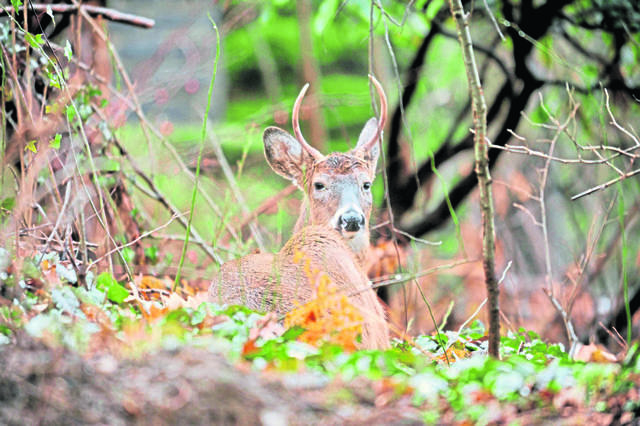Irreconcilable differences have existed for some time between Pennsylvania’s hunters and the Pennsylvania Game Commission (PGC).
Due to socioeconomic conditions around the early to mid-1900s, there existed for a time a unique habitat situation (e.g., re-growth of logged areas, abandonment of small farms, etc.) that led to an abundance of white-tailed deer.
The blaze orange-clad “great pumpkin army” of well over 1 million hunters would descend upon the farms and woods religiously on the Monday after Thanksgiving, with the sole purpose of harvesting the state’s signature game animal, a white-tailed deer. This annual return to the forests and fields served many purposes, financial, social and even political.
Entire smaller communities met their annual financial needs with the two-week influx of deer hunters. The direct and trickle-down financial benefits of this event were extensive. As a family and social event, deer hunting was then of immeasurable value.
Not only were hunters willing to provide for game management through the use of their license fees, they would also willingly provide for all wildlife and habitat management. The only expectation was the opportunity to hunt deer, with the anticipation of interacting with a reasonable number of deer.
The importance of deer hunting as a recreational activity is evident in the PGC’s 1976 Deer Management Policy: The Commission recognizes that recreational hunting is the major use of deer … the Commission will endeavor to manage deer on the basis of: (a) compatibility with other land uses, (b) maximum overall recreational opportunity, (c) maximum sustained harvest.
A new paradigm was adopted by the PGC in the late 1990s and early 2000s to drastically reduce the number of deer in the state: Deer management devoid of the socioeconomic considerations of the funding source, hunters. The actual number of deer was no longer a concern to the PGC. Overly generous doe licenses were issued year after year, and the efficiency of the state’s deer hunters was demonstrated to achieve the goal of fewer deer.
Hundreds of thousands of hunters left the sport due to a lack of encounters with their quarry. This had a fatal impact on the social interests of hunters and the financial interests of those affected by hunter participation numbers, including the PGC license fee revenue.
The PGC’s paradigm shift showed its desire to accommodate a multitude of other “stake holders” in its decisions. The hunter’s wishes appeared to no longer to be of primary importance.
In its own Deer-Forest Study finally begun after the damage was done to the deer program, and hunter numbers dwindled, the PGC is addressing what should have been obvious prior to the paradigm shift: Deer are not the only effect on forest regeneration.
Pennsylvania hunter numbers are dramatically down from millions to hundreds of thousands. The PGC has been asking for a hunting license fee increase ever since its paradigm shift. This fee increase has been refused by the politicians time and again. The politicians do listen to their constituents, the ultimate survey.
Now for the perfect storm. Chronic wasting disease is spreading in the state’s deer herd. There are now potentially too few hunters to control a deer herd that is always looking to expand naturally, and with this expansion goes the disease. Who will help keep the spread in check? Who will desire to hunt and eat diseased deer?
In general, chronic wasting disease studies suggest that shedding of infectious prions may likely be progressive during the course of the disease, from initial infection to incubation to certain death. As a part of its paradigm shift, the PGC put in place antler restrictions for older, larger bucks; i.e., older deer with the propensity to dramatically expand their range in the fall by rampaging around large areas of the countryside during the mating season rut and represent the worst-case spreaders of the incubating disease.
By ignoring the hunters’ interests, changing the deer management approach to disfavor their client, customer and financier, and now faced with the scientific certainty of a spreading disease in the deer herd, the PGC has, in effect, triggered the beginning of the end for meaningful wildlife and habitat management in Pennsylvania. It is only hunters who can provide the financial, social and political will for all wildlife and habitat management.
Robert Smith is vice president and senior environmental scientist for Duquesne-based KU Resources Inc.








